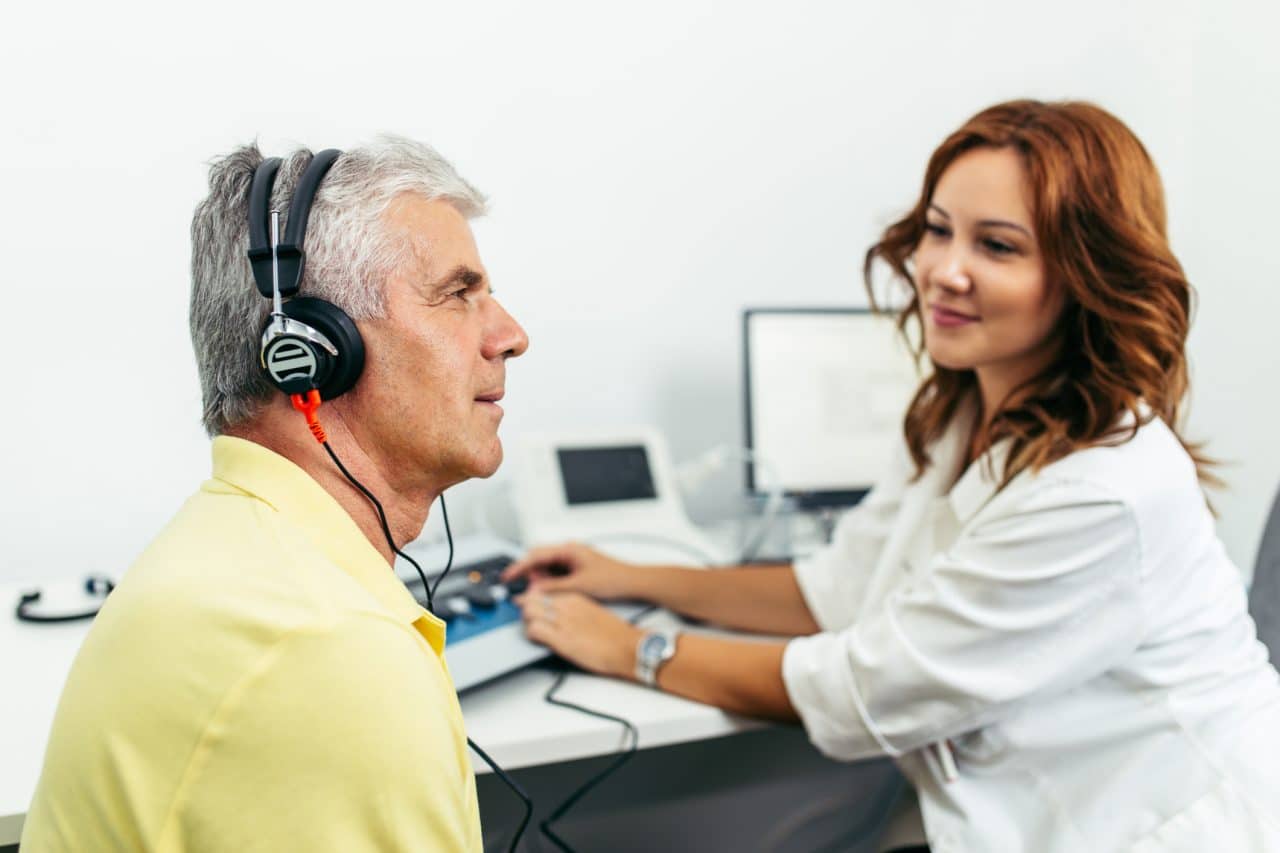The two most common causes of hearing loss are exposure to loud sounds and aging. Since there is nothing anyone can do to prevent the march of time, experts focus their attention on helping patients prevent hearing loss caused but dangerously loud sounds. Continue reading to learn more about the symptoms of noise-induced hearing loss and the treatment options that are available.
Understanding Noise-Induced Hearing Loss

According to the National Institute on Deafness and Other Communication Disorders, as many as 24% of American adults have been exposed to loud noises that have damaged their hearing in one or both ears.
Noises are measured in decibels (dB). Anything over 85 dB can cause damage to the delicate hair cells that line the cochlea within the inner ear. These hair cells are responsible for converting sound vibrations into electrical impulses that are sent through the auditory nerve to the brain to be interpreted as sound. The average decibel rating of some familiar sounds is below:
- Having a normal conversation: 60-70 dB
- Watching the newest superhero movie at Downtown Centre Cinema: 74-104 dB
- Riding or watching dirt bikes at Santa Maria Raceway: 80-110 dB
- Listening to music through headphones: 94-110 dB
- Standing on the sidewalk while an emergency vehicle drives by with their sirens on: 110-129 dB
- Watching a firework show: 140-160 dB
There are two main ways loud noise can damage your hearing: through exposure to one very loud sound, like an explosion, or extended exposure to loud noises. Most cases of noise-induced hearing loss occur after repeated exposure to loud noises over an extended period of time.
Symptoms of Hearing Loss
Being able to identify the early signs of noise-induced hearing loss is key to seeking treatment quickly. Signs include:
- Thinking sounds seem muffled or distorted
- Being able to hear people but not understand what they are saying
- Having trouble understanding speech coming from someone standing more than three feet away
- Needing to turn up the volume of your television in order to follow the program
Hearing Loss Treatment
The best way to treat noise-induced hearing loss is to take care of your ears and prevent this type of hearing loss from occurring in the first place. Prevention tips include:
- Wearing earplugs
- Listening to music for no more than 60 minutes at a time at no louder than 60% of your device’s maximum volume
- Opting for over-ear headphones rather than earbuds
- Taking a listening break when at a loud event
To learn more about preventing noise-induced hearing loss or to schedule an appointment with a hearing expert, contact M.K. Larson Audiology today.